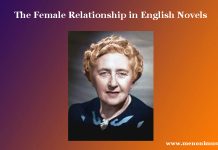J Austen | Use of Wit and Irony in Pride and Prejudice
J Austin | Use of Wit and Irony in Pride and Prejudice
J Austen | Use of Wit and Irony in Pride and Prejudice
or
Humour in ‘Pride and Prejudice’
‘Wit’ is a clever, skilful or artful thought-propounding verbal expression of an idea produced by pun, oxymoron, paradox, quibbles and so on which is contrived to excite our surprise and delight. It often produces a humorous or comic effect.
On the other hand, ‘irony’ is a tactful expression or representation of an idea, event, situation or circumstance with an implied or hidden meaning or significance besides its literal or superficial meaning. An irony expresses two meanings simultaneously as- one is obvious (literal /apparent) or the other is hidden or deeper (under the surface) meaning. The real purpose of using irony is to ridicule or blame a person or thing and thus it produces humorous or comic effects.
In the novel ‘Pride and Prejudice’ the author Jane Austen makes ample use of wit and irony through which she has expressed the inner nature, follies, foibles and weaknesses of her characters which give rise to deep humour in the novel. Her wit is often ironic and her irony is often witty. But the use of her wit and irony is neither situational nor dramatic but mostly verbal.
The very first sentence with which the novel begins is witty as well as ironic. It reads as:
‘It is a truth universally acknowledged that a single man in possession of good fortune must be in want of a wife.’
What we read in the sentence is its opposite as- a single woman must be in want of a man with good fortune. Most verbal wit, as well as irony, is produced in the novel by Elizabeth and Mr Bennet. Elizabeth, the second daughter of Mr Bennet is intelligent, lively and playful having sound command over the language. She often uses witty remarks about other characters and their attitudes. Her conversation with Bingley as quoted below is ironic:
”I did not know before— that you were a studier of character. It must be an amusing study.”
Then what Elizabeth replies to Bingley is also witty as:
”Yes, but intricate characters are most amusing. They have at least that advantage.”
Elizabeth again seems to be witty and humorous when she replies to Jane’s enquiry of her love to Darcy as:
”I must date it from my seeing his beautiful ground at Pemberley.”
Like Elizabeth, Mr Bennet is also witty and almost everything what he says is witty and humorous. Once he said to his daughter, Elizabeth:
”…let Wickham be your man. He is a pleasant fellow, and would jilt you creditably.”
These quoted lines are ironic because though Mr Bennet seems to praise Wickham but really he derogates him saying that he would jilt Elizabeth someday.
Not in dialogues but also in the objective narration of the author there is ample source of irony and humour. For instance, Jane Austen writes commenting on Mr Bennett’s married life:
”To his wife, he was very little otherwise indebted than as her ignorance and folly had contributed to his amusement.”
Thus the novelist has made ample use of wit and irony in the novel which has contributed much to the store of humour in the novel and it is the humour that makes the novel a grand one. 0 0 0
J Austen | Use of Wit and Irony in Pride and Prejudice
Read More: The Theme of George Eliot’s Novel ‘Middlemarch’
J Austen | Use of Wit and Irony in Pride and Prejudice
N. B. This article entitled ‘J Austen | Use of Wit and Irony in Pride and Prejudice’ originally belongs to the book ‘World Novel Criticism‘ by Menonim Menonimus. J Austen | Use of Wit and Irony in Pride and Prejudice
Books of Literary Criticism by M. Menonimus:
- World Short Story Criticism
- World Poetry Criticism
- World Drama Criticism
- World Novel Criticism
- World Essay Criticism
- Indian English Poetry Criticism
- Indian English Poets and Poetry Chief Features
- Emily Dickinson’s Poetry-A Thematic Study
- Walt Whitman’s Poetry-A Thematic Study
- Critical Essays on English Poetry
- Tawfiq al-Hakim’s Novel: Return of the Spirit-An Analytical Study
- Tawfiq al-Hakim’s Novel: ‘Yawmiyyat Naib Fil Arayaf’-An Analytical Study
- Analytical Studies of Some Arabic Short Stories
- A Brief History of Arabic Literature: Pre-Islamic Period …
Related Searches:
- Use of Wit and Irony in ‘Pride and Prejudice‘
- Elements of Wit and Irony in the Novel ‘Pride and Prejudice’
- Heart of Darkness
- Heart of Darkness: Marlow
- ‘Middlemarch’ Themes
- ‘Middlemarch’ Themes-Course Hero











